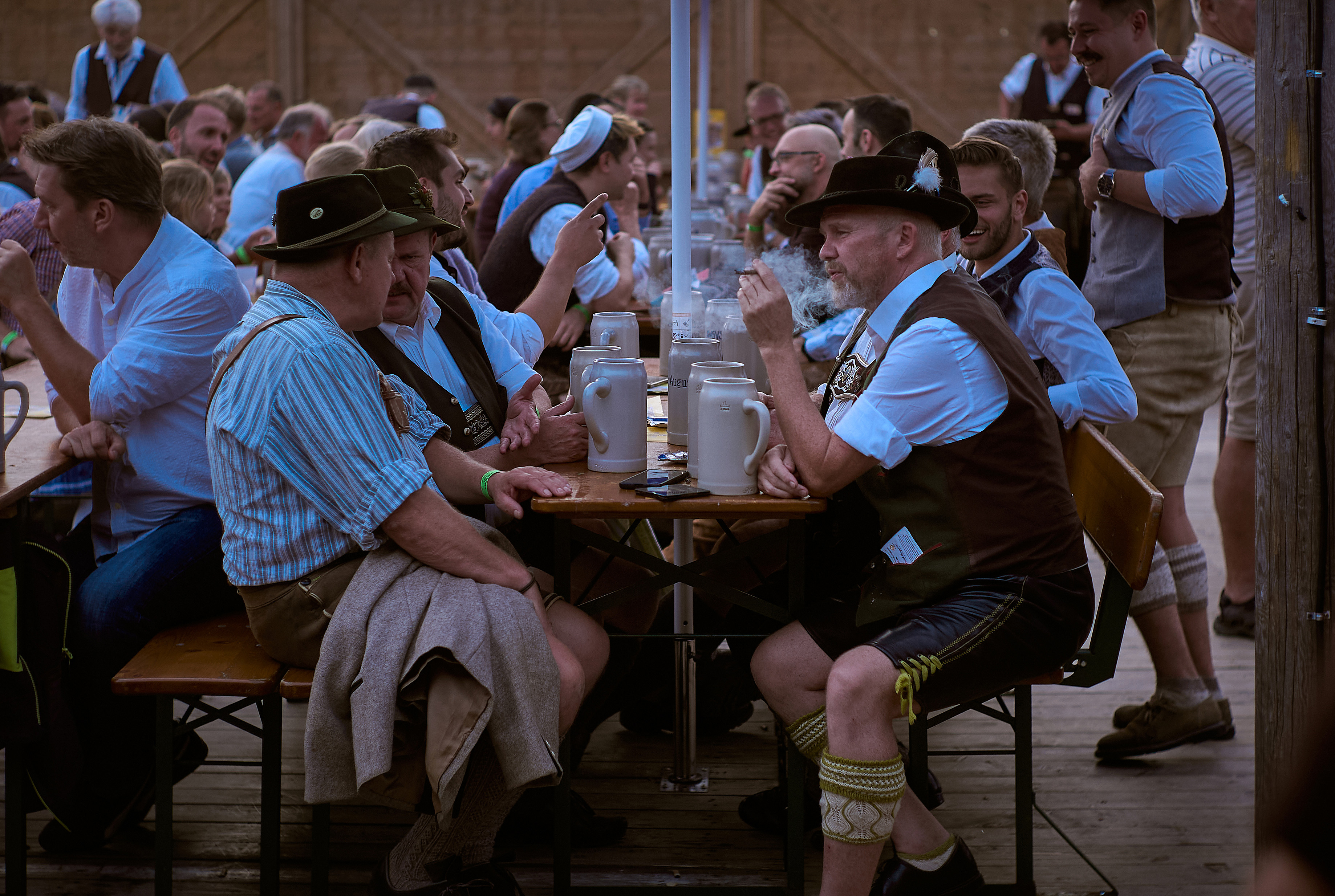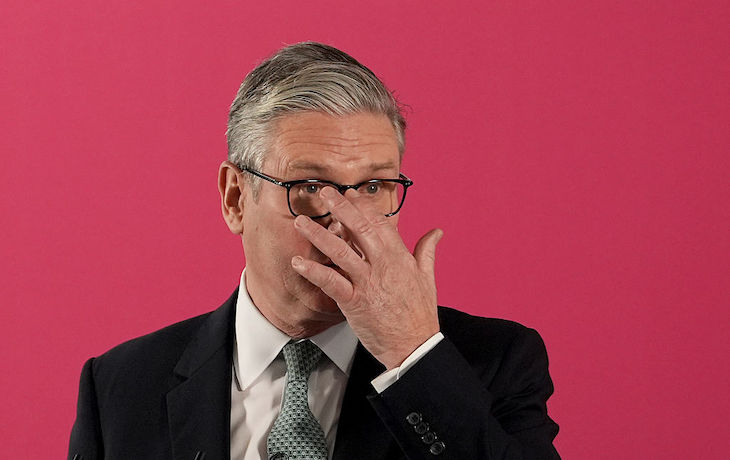Sitting in a gigantic marquee on the green edge of Munich, surrounded by thousands of boozy Germans singing along to a Bavarian oompah band, I wonder how I got talked into coming to another Oktoberfest. Last time I came, ten years ago, I hated it and swore I’d never come again, but this time feels different. Maybe it’s the beer talking, but this year the atmosphere seems less manic, more relaxed. There are lots of couples, old and young, and hardly any stag parties. Amid the endless rows of trestle tables I see numerous families in traditional Bavarian dress (the women so alluring in their dirndls, the men faintly ridiculous in their lederhosen), tucking into huge hearty platters of carnivorous Bavarian grub. In my Spectator, I read that Robert Jenrick has been telling Britons to take more pride in Britain. A visit to the Oktoberfest reveals the blind spot in this debate. A lot of Brits simply have stronger regional identities, a lot like these Bavarians. Many of these locals would be reluctant to say they were proud of being German, but they’d have no hesitation in saying they were proud to be Bavarian.
Bavarians love getting tipsy, but they don’t like getting drunk
Bavaria lost its monarchy over a century ago, but the Oktoberfest still feels like a royal jamboree. It all began in 1810 when Prince Ludwig of Bavaria married a Saxon princess and threw a vast wedding party for everyone in Munich. Apart from a few interruptions for wars and plagues (latterly Covid), it’s been an annual institution ever since, and it’s growing bigger every year. Last year, more than seven million people spent more than a billion euros – around €450 million at the Oktoberfest, and another €550 million in the city. Yet the festival only sells around seven million litres of beer, one litre per visitor – and, as I can confirm, after sinking an enormous Maß of Wiesnbier (around 6 per cent proof), one litre is quite enough. Even here at the Oktoberfest, non-alcoholic beers are on the rise, and constantly improving. This year’s alcohol-free versions are virtually indistinguishable from the real thing. Bavarians love getting tipsy, but they don’t like getting drunk.
The stars of this mammoth bierfest are the tireless waitresses who bring the beers to your table, sometimes lugging as many as 12 litres at a time. I sat down with one of them, Cristina, during her ten-minute break, to ask her about her work. She works 8 a.m. to 11 p.m. throughout the festival, and she doesn’t draw a wage. Instead, she buys beer from the brewery at a discount and then makes a profit on every Maß she serves. The same goes for food. She has to hire her uniform from the brewery. She even has to pay for cutlery. But after an initial outlay of a couple of thousand euros, waitresses can make well over €10k – not bad going for a fortnight’s work. British socialists might baulk at this ruthless form of employment, but this is Cristina’s fifth year and even though it’s gruelling (‘My whole body is hurting – my bones are hurting’) she always enjoys it. ‘It’s not only because of the money – it’s also great fun,’ she tells me, as she dashes off for her next shift. ‘It’s my favourite time of year.’
So why is it called the Oktoberfest when most of it takes place in September? Simple. It used to be in October, but then these business-minded Bavarians brought it forward by a few weeks to sell more beer in better weather. Now it starts on the first Sunday after 15 September and ends on the first Sunday in October – 16 days in all. A more recent alteration is Der Tag der Deutschen Einheit (the Day of German Unity), a national holiday that marks the reunification of Germany on 3 October 1990. If 3 October falls on a Monday or a Tuesday, then the Oktoberfest is extended by a day or two – more work (and more money) for Cristina and her colleagues.
This reunification bonus is ironic, for the Oktoberfest is a celebration of Bavaria’s distinct identity rather than German unity. A 60ft statue of Bavaria (a mythical goddess, like Britannia) towers over the festival, flanked by a neoclassical Ruhmeshalle (hall of fame) devoted to eminent Bavarians – as opposed to Germans. Recent additions to this pantheon include Bertolt Brecht – another irony. Although Brecht was born in Bavaria, after the war he went to East Berlin and threw in his lot with the communist regime. And although the East German state that he supported vanished after the Berlin Wall came down, 35 years later Eastern Germany still feels like a different country. It votes differently too. In last Sunday’s elections in the eastern state of Brandenburg, the far-right Alternative für Deutschland (AfD) party won 30 per cent of the vote. In last year’s Bavarian state elections, AfD polled 15 per cent.
So why is AfD only half as popular in Bavaria as it is in Brandenburg? Partly because Bavaria is a lot more prosperous, but mainly because, unlike the rest of Germany, Bavaria has a robust (but eminently respectable) right-wing party, the Christian Social Union (CSU), to call its own. On a national level, the CSU has always governed alongside its pan-German sister-party, the Christian Democratic Union (CDU), but on a regional level the CSU has always been more right-wing than the CDU. If Chancellor Scholz is serious about halting the seemingly inexorable growth of AfD, he could learn a few lessons from the centre-right party that has ruled Bavaria for all but four years since the war. The symbolism of the Oktoberfest is telling. Every year, Munich’s mayor (usually a social democrat) pulls the first Maß on the first day, but then he hands it to the Bavarian Prime Minister (invariably a conservative) who drinks it. Eastern Germany may be lurching alarmingly towards the far right, but Bavaria will always be a sensible conservative country at heart.








Comments